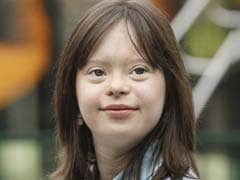Relapse in leukemia is challenging, but treatments like bispecific antibodies are changing the game.

Scientists are working to make these therapies even better and available to more patients
Leukemia is a type of blood cancer that starts in the bone marrow, where blood cells are made. Even with advancements in treatments, leukemia can come back (relapse) in some patients. Studies show that about 10-15% of children and 50% of adults with a type of leukemia called acute lymphoblastic leukemia (ALL) experience a relapse, often two years after their treatment. Another type, acute myeloid leukemia (AML), also has a high relapse rate of about 50%. When leukemia relapses, it becomes more difficult to treat, but a new treatment called bispecific antibodies offers hope.
Why does leukemia relapses?
Leukemia relapse happens when some cancer cells survive the initial treatment and stay hidden in the body as what doctors call minimal residual disease (MRD). These leftover cells can grow over time and lead to a recurrence. Relapsed leukemia is usually harder to treat because these cells adapt, become stronger, and develop changes that make them resistant to the original treatments.
Common symptoms of relapse include:
- Feeling extremely tired
- Getting frequent infections
- Easy bruising or unexplained marks
- Fevers that don't go away
These symptoms tend to be more severe than when the disease was first diagnosed and need urgent medical attention.
What are bispecific antibodies and how they help?
Traditional treatments like chemotherapy, radiation, and stem cell transplants are used for relapsed leukemia but can have limitations, such as severe side effects or a lack of success in some cases.
Bispecific antibodies are a newer, more targeted treatment, that is more precise and less harmful. Think of them as specialized tools that attach to both the leukemia cells and the immune system's "fighter cells" (called T-cells). This connection helps the immune system recognize and attack the cancer cells directly. Bispecific antibodies are given through an IV and have shown encouraging results. In clinical trials, 44% of patients who didn't respond to earlier treatments went into remission after using this therapy.
Key benefits of bispecific antibodies:
- Precise Targeting: They attack leukemia cells without harming healthy ones.
- Fewer Side Effects: They are gentler on the body compared to chemotherapy.
- Quick Results: Many patients see improvement within weeks of starting treatment.
However, these treatments can cause some side effects. Patients should talk to their doctors to see if this therapy is right for them.
Who is eligible for bispecific antibodies?
Bispecific antibodies are typically considered for patients with relapsed or difficult-to-treat leukemia, especially those who:
- Have not responded to other treatments like chemotherapy or stem cell transplants
- Have minimal residual disease (MRD) after initial treatment
- Are not eligible for other therapies due to age or health conditions
It is essential for patients to discuss their specific case with their doctor to determine if this therapy is the right fit.
What's next for bispecific antibodies?
Scientists are working to make these therapies even better and available to more patients. They are also testing how bispecific antibodies can work together with other treatments, like CAR-T cell therapy or checkpoint inhibitors, to give even better results.
Relapse in leukemia is challenging, but treatments like bispecific antibodies are changing the game. By using the body's immune system to attack cancer cells more effectively, these therapies bring new hope to patients. With more research, we are getting closer to making leukemia relapses easier to treat and improving lives.
Dr. Nitin Sood, Senior Director, Medical Oncology, Bone Marrow Transplant, Cancer Care, Medanta, Gurugram
Disclaimer: The opinions expressed within this article are the personal opinions of the author. NDTV is not responsible for the accuracy, completeness, suitability, or validity of any information in this article. All information is provided on an as-is basis. The information, facts, or opinions appearing in the article do not reflect the views of NDTV and NDTV does not assume any responsibility or liability for the same.
DoctorNDTV is the one stop site for all your health needs providing the most credible health information, health news and tips with expert advice on healthy living, diet plans, informative videos etc. You can get the most relevant and accurate info you need about health problems like diabetes, cancer, pregnancy, HIV and AIDS, weight loss and many other lifestyle diseases. We have a panel of over 350 experts who help us develop content by giving their valuable inputs and bringing to us the latest in the world of healthcare.














